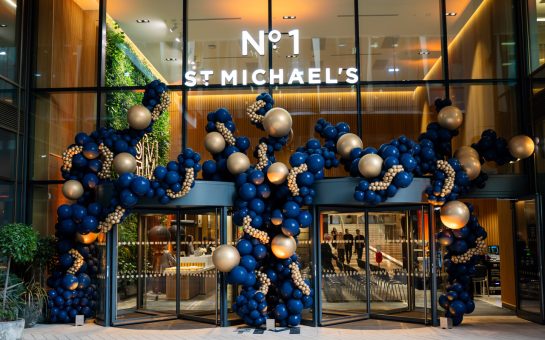Hornsey Road with Mark Lewisohn is an immersive dissection of the Beatles penultimate album before the band landed on the title Abbey Road.
Led by the famous Beatles historian Mark Lewisohn at the Lowther Pavilion in Lytham, the tour is set to conclude at HOME, Manchester on Wednesday, December 4,
Lewisohn, who is the author of such literary goliaths as The Complete Beatles Recording Sessions and the 1000 page The Beatles: All These Years, starts the show by giving details of where the Beatles found themselves in 1968 and 1969.
John and Yoko were inseparable, George had plunged himself into all things India, Ringo was busy starring in such cinematic flops as The Magic Christian and the band’s record label, Apple Corps, was desperately in need of a financial head on it since the passing of Brian Epstein.
By 1969, the Beatles were covered more in the business pages than arts and culture pages. It was during this time that the seeds of divorce were sown as Paul McCartney recalled “the big crack in the liberty bell”, when all four members were divided in what direction Apple Corps should be headed financially.
After both John and George were charged for drugs possession at their homes following a drugs bust by the police (busts at which the police brought their own stash just to make sure) the team headed into EMI Studios to put together what would turn out to be their last recorded album.
Ideas for songs came out of suitably unorthodox places, as had been the case for a lot of their previous songs. Polythene Pam, for instance, about a Cavern Club regular who simply liked to chew on polythene.
She Came in Through the Bathroom Window – ‘she’ being a crazed fan who broke into Paul’s home through the bathroom window during the Abbey Road sessions.
Then Come Together, a song commissioned by Timothy Leary who was running for the Governor of California against Ronald Reagan no less, with the campaign slogan of ‘Come Together’ and asked John for a campaign song.
Most interestingly is the story of Mean Mr Mustard. This turned out to be about a Scottish civil servant named Mr Mustard, a man that Lewisohn had evidently spent considerable time charting his life from article to article.
The Daily Mail ran with a story about how this Mr Mustard was indeed ‘mean’ as he didn’t allow his wife to turn the lights on in the house to save electricity. One headline read: “Mean Mr Mustard shaves in the dark.”
He died in 1984, seemingly unaware that one of the band’s 180 tracks was founded when John read the unflattering piece about him.
The show provides a more intimate profile of the band through archive pictures, recordings and mix outs of the songs that did and didn’t make the final cut, all of which are presented from the front of the room, intriguingly narrated by a thorough historian and avid music fan.
I caught myself forgetting these four are worldwide icons, instead just four lads from Liverpool.
After two hours of taking every sentence of his as gospel, I came out the show more clued up about an album and band that I would have said I knew somewhat well before the show started.
After all, Lewisohn’s mantra for his teachings goes as follows: “We know everything there is to know about the Beatles, so what else can possibly be written? People say that all the time and I don’t agree with it for a second.”
Given this, I guess he achieved his goal of educating Beatles fans in areas they didn’t know needed any further lessons.
Pub quiz’s watch out!



